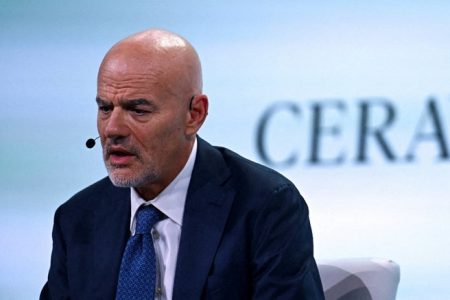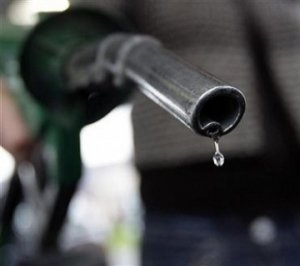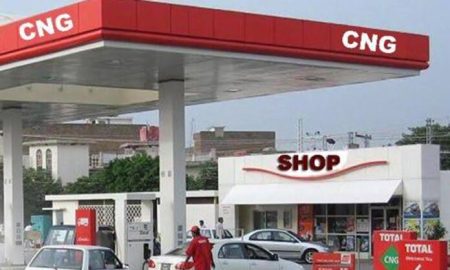 *As activists lament inaction on reports on fraud in industry
*As activists lament inaction on reports on fraud in industry
Oscarline Onwuemenyi
02 February 2014, Sweetcrude, Abuja – Nigerians may not have seen the end of the recent hullabaloo arising from allegations of misuse of $49.8 billion subsidy fund launched by the now-ostracised Governor of the Central Bank, Mallam Sanusi Lamido, against the Nigerian National Petroleum Corporation, NNPC, and other agencies within the nation’s oil and gas industry.
Ever since the first salvo was launched by the ebullient banker a few months back, several parleys have been held between the NNPC, the CBN, the Ministry of Petroleum Resources, and the Ministry of Finance aimed at papering over the gaping cracks, even as suspicions simmer in the background. And, of course, the CBN Governor has had to deal with some heat, including queries from the Presidency, for blowing his mouth too much.
However, in spite of efforts by the NNPC to explain away the disappearance of billions of dollars, Nigerians cannot help feeling a sense of ‘business as usual’ for an industry that has remained over the decades a cesspit of intractable corruption and malfeasance.
This explains the wanton lack of shock by Nigerians even as revelations of missing billions of subsidy funds continue to pour in. People who bother to pay attention to activities within the nation’s petroleum industry have indeed become numb to such allegations, seeing it as one of the consequences of a poorly regulated industry, where no one can account for the exact oil that is even produced on a daily basis.
Different administrations have come in and promised to take a microscope and a hammer to the operations of the NNPC, many go as far as setting up committees to investigate different aspects of the oil and gas behemoth, but no sooner the reports are brought in than everyone reverts to the status quo.
Meanwhile, prominent activists and industry-watch groups have called on the President Jonathan’s administration to act on the numerous reports on the petroleum industry, which had identified gross lack of accountability and corruption within the industry, and recommended ways to plug the loopholes within the system.
The activists, made up of a group of lawyers and civil society advocates under the banner of ‘The Oil Probe Follow-up Group’, say little or no action has been taken on the reports’ findings since they were submitted to Mr. Jonathan in 2012.
The group further called on the Economic and Financial Crimes Commission, EFCC, to investigate the allegations of fraud detailed by the two committees set up by President Goodluck Jonathan in the wake of the 2012 fuel subsidy crisis.
The group in two petitions – one for each of the committee’s report – to the EFCC Chairman, Ibrahim Lamorde, noted that little or no action has been taken on the reports’ findings since they were submitted to the president in 2012.
Some of the members of the group include Chidi Odinkalu, Chairman of Nigerian Human Rights Commission; Femi Falana, a Senior Advocate of Nigeria; Adetokunbo Mumuni of Social Economic Right Accountability Project; Olanrewaju Suraj of Human and Environmental Development Agenda; and Jiti Ogunye, a Lagos-based lawyer.
The follow-up group, the petition noted, “is conceived against the background that Nigeria and its citizens are endangered because the oil and gas sector which is currently the country’s major income stay is enmeshed in a potpourri of scams.”
Motunrayo Alaka, Co-ordinator at the Wole Soyinka Centre for Investigative Journalism, who is collaborating with the group, noted that, “Despite reports from many government-initiated oil probe panels, especially in 2012, confirming mind boggling fraud in the sector, the government is yet to take commensurate steps to address the situation.”
Report of the petroleum revenue special task force
On February 8, 2012, Mrs. Diezani Alison-Madueke, the Petroleum Minister, inaugurated the Petroleum Revenue Special Task Force headed by Nuhu Ribadu, a former EFCC boss.
Six months later, the committee submitted its findings to President Jonathan, detailing gross allegations of official fraud and corruption in the oil industry.
The group, among other things in the report, urged the EFCC to investigate the Nigerian National Petroleum Corporation’s, NNPC, alleged failure to use prevailing CBN exchange rates for calculating the value of crude oil sold to its refineries.
It charged the anti-graft commission to “investigate all relevant circumstances surrounding the alleged non-payment of a reported $167 million in oil block signature bonuses by concessionaires.
“That you investigate all relevant circumstances surrounding the Department of Petroleum Resources’ alleged failure to collect a reported $2.9 million worth of concession rentals.
“That you investigate all relevant circumstances surrounding the alleged non-payment of a reported $3.027 billion in royalties on crude oil and gas produced by named operators, including the alleged $1.5 billion in outstanding royalties owed by Addax Petroleum,” the group stated.
The group further urged the anti-graft agency to investigate the DPR’s alleged failure to collect amounts due to the nation as gas flare penalties; commodities-trading firms lifting NNPC crude oil without having executed term lifting contracts in place; and SNEPCO’s alleged non-remittance of N137.572 billion in gas sale proceeds from the Bonga concession.
Technical committee on payment of fuel subsidies
In the same February 2012, Ngozi Okonjo-Iweala, Nigeria’s Finance Minister, chaired a stakeholders’ meeting of the downstream petroleum sector which led to the establishment of the Technical Committee on Payment of Fuel Subsidies.
The Committee, headed by Aigboje Aig-Imokhuede, submitted the report of its findings and recommendations to the President in July 2012.
In its report, the committee noted, among others, that over N400 billion was paid as subsidy in 2012 to fake petroleum marketers; there was an excess payment of N14 billion as bank spread from defaulting marketing and trading companies; and ineligible oil marketing and trading companies were allowed to participate in the subsidy process.
The group’s petition to the EFCC urged the commission to further investigate all the companies mentioned in the report and prosecute defaulting directors and officers, as well as the PPPRA officials responsible for the lapses in the subsidy administration process.
The group also called for the investigation of the N331 billion worth of kerosene subsidy payments made between June and December 2011 and prosecute those involved in criminal acts.



